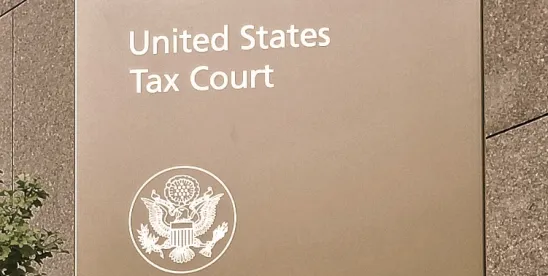In the latest victory for taxpayers, the Tax Court determined that the Treasury failed to follow federal law in enacting a conservation easement perpetuity rule known as the “proceeds regulation.” The majority opinion held that conservation easement deeds no longer have to comply with the proceeds regulation, which it was “not optimistic” the taxpayer, Valley Park, would have met. Rather, the Tax Court applied the two overarching perpetuity requirements of the underlying statute, which it found that Valley Park satisfied. However, this case like many others will not end with the taxpayer surviving technical challenges by the IRS and will undoubtedly result in a decision based on the real issue in these cases – a determination of the value of the conservation easement.
As we have previously covered, the IRS has stepped up conservation easement enforcement in recent years, often summarily denying deductions on the basis that taxpayers failed to comply with various Treasury Regulations and other technical requirements, such as by failing to protect the conservation purpose in perpetuity. A regulation is a set of requirements issued by a federal government agency, like the Treasury, to implement laws passed by Congress. The “proceeds regulation” was published to address how a conservation easement’s conservation purpose can still be treated as “protected in perpetuity” where the easement is later judicially extinguished through specifying how proceeds must be allocated between donors and donee organizations in such situations.
In December 2016, Valley Park Ranch, LLC of Oklahoma donated a conservation easement and claimed a $14.8 million charitable contribution deduction under I.R.C. § 170(a). The easement provided that the proceeds would be split as “determined by the court, unless otherwise provided by State or Federal law” if the easement was later extinguished in whole or in part by judicial proceedings. The IRS has routinely sought to invalidate conservation easement deductions at the summary judgment stage on the basis that extinguishment clauses like this in the deed failed to comply with the Treasury’s proceeds regulation. The IRS took the same approach with Valley Park and also applied penalty determinations, including a 40% penalty on any underpayment of tax, a gross valuation misstatement penalty. Valley Park timely petitioned the Tax Court for review and argued that the regulation was invalid.
Valley Park faced an uphill battle at the Tax Court as just four years earlier, in 2020, the Tax Court decided Oakbrook Land Holdings v. Commissioner, with the majority upholding the proceeds regulation and its perpetuity requirement. In Valley Park, the Tax Court reversed course and aligned with a subsequent Eleventh Circuit decision, holding the regulation procedurally invalid because the U.S. Treasury Department failed to “clearly consider” public comments and revise the proposed rules in response to such public comments, as required by the Administrative Procedures Act (“APA”). The dissent raised that the opinion, by reversing a decision made only four years prior, would “result in instability of the law in the area of conservation easements.” The majority disagreed and found that the Court must revisit the Oakbrook decision “because the law is already unstable” where a Circuit Court of Appeals had reversed the prior decision.
This ruling allows Valley Park to survive the IRS challenge at the summary judgment stage, with the case now moving forward to trial in June 2024 where the taxpayer will have to defend the $14.8 million valuation of the donated easement. Unless the Treasury passes new regulations in accordance with the APA, taxpayers will likely no longer have to comply with the proceeds regulation and will only have to comply with the perpetuity requirements contained in the statute passed by Congress – namely that the easement deed satisfies the “restriction (granted in perpetuity)” requirement under I.R.C. § 170(h)(2)(C) and the “protected in perpetuity” requirement of I.R.C. § 170(h)(5) – and other Treasury regulations that remain valid.
While Valley Park creates another victory for taxpayers, the IRS continues to deny conservation easement charitable deductions on other bases. Most importantly, the IRS continues to challenge and win on the valuation of the conservation easement donation. For example, last week in Savanah Shoals, the Tax Court allowed only 2.5% of the claimed value of the easement charitable deduction. For professional advisors and their clients who previously invested in conservation easements, understanding the exposure to the potential latent civil and criminal risks associated with these investments is paramount so that you can take steps to mitigate the risk, if warranted. Polsinelli’s government investigations, tax and business attorneys have extensive experience with conservation easements and are prepared to assist with tax compliance or any potential enforcement action by the government.






 />i
/>i
